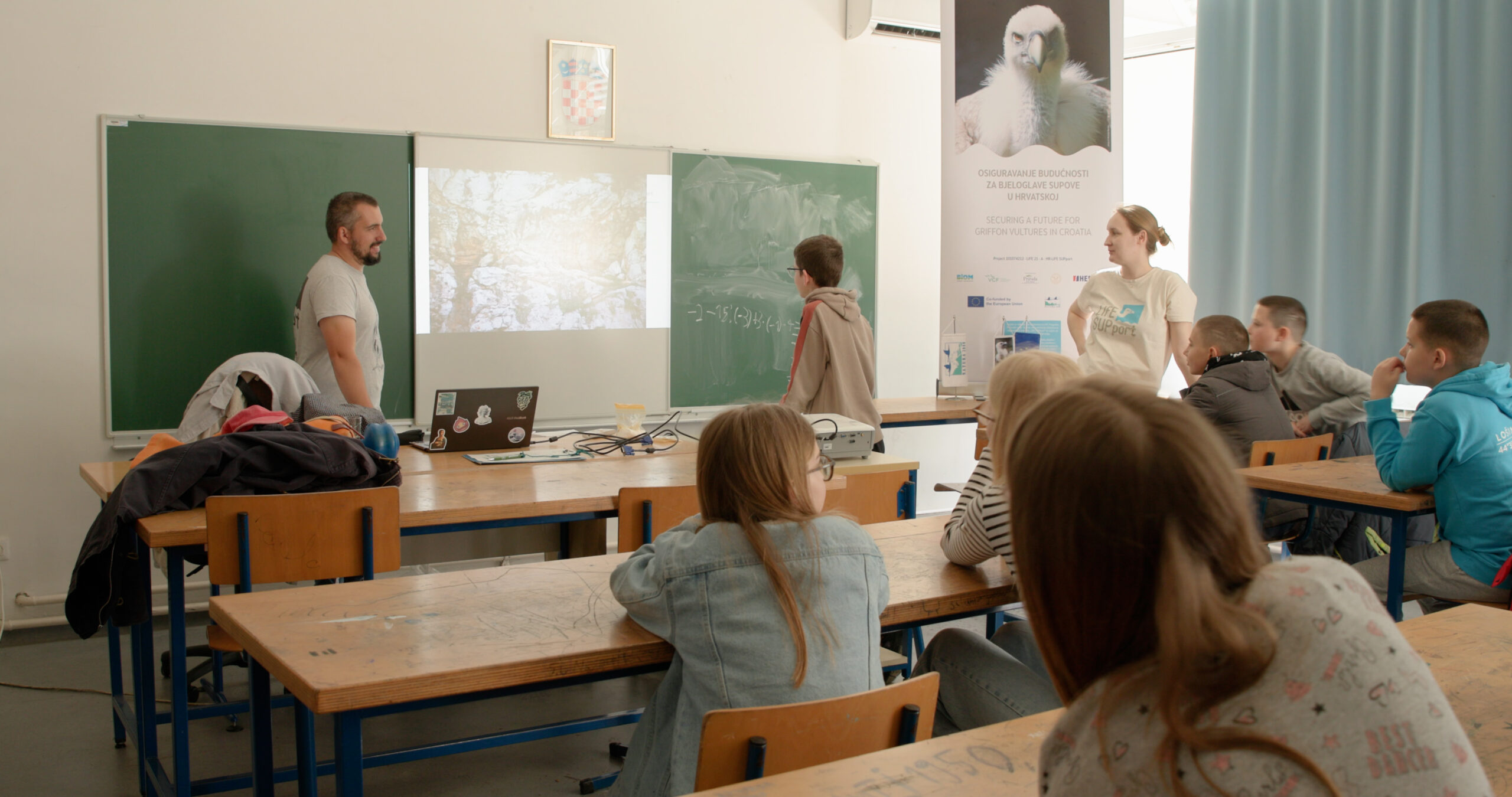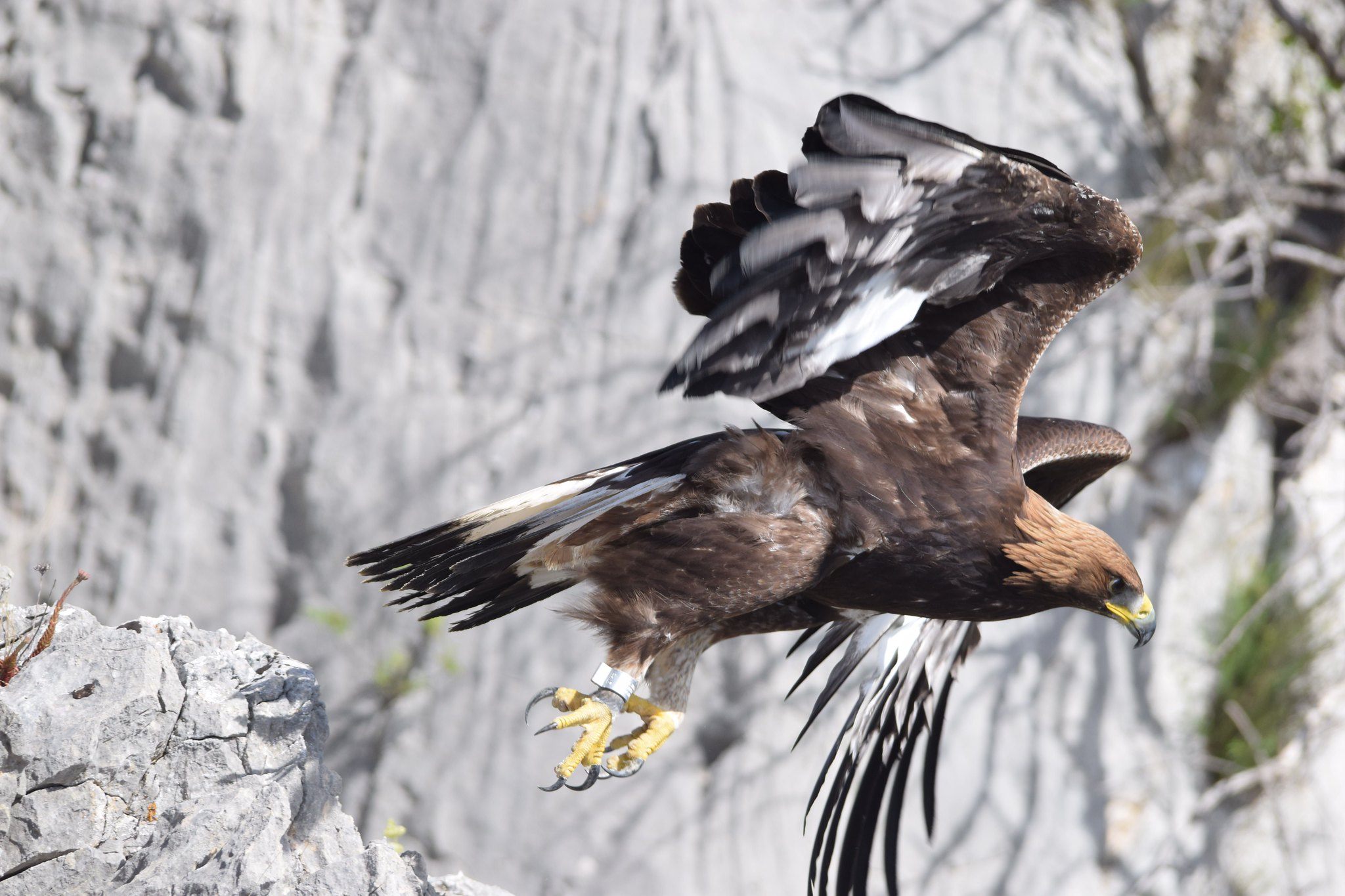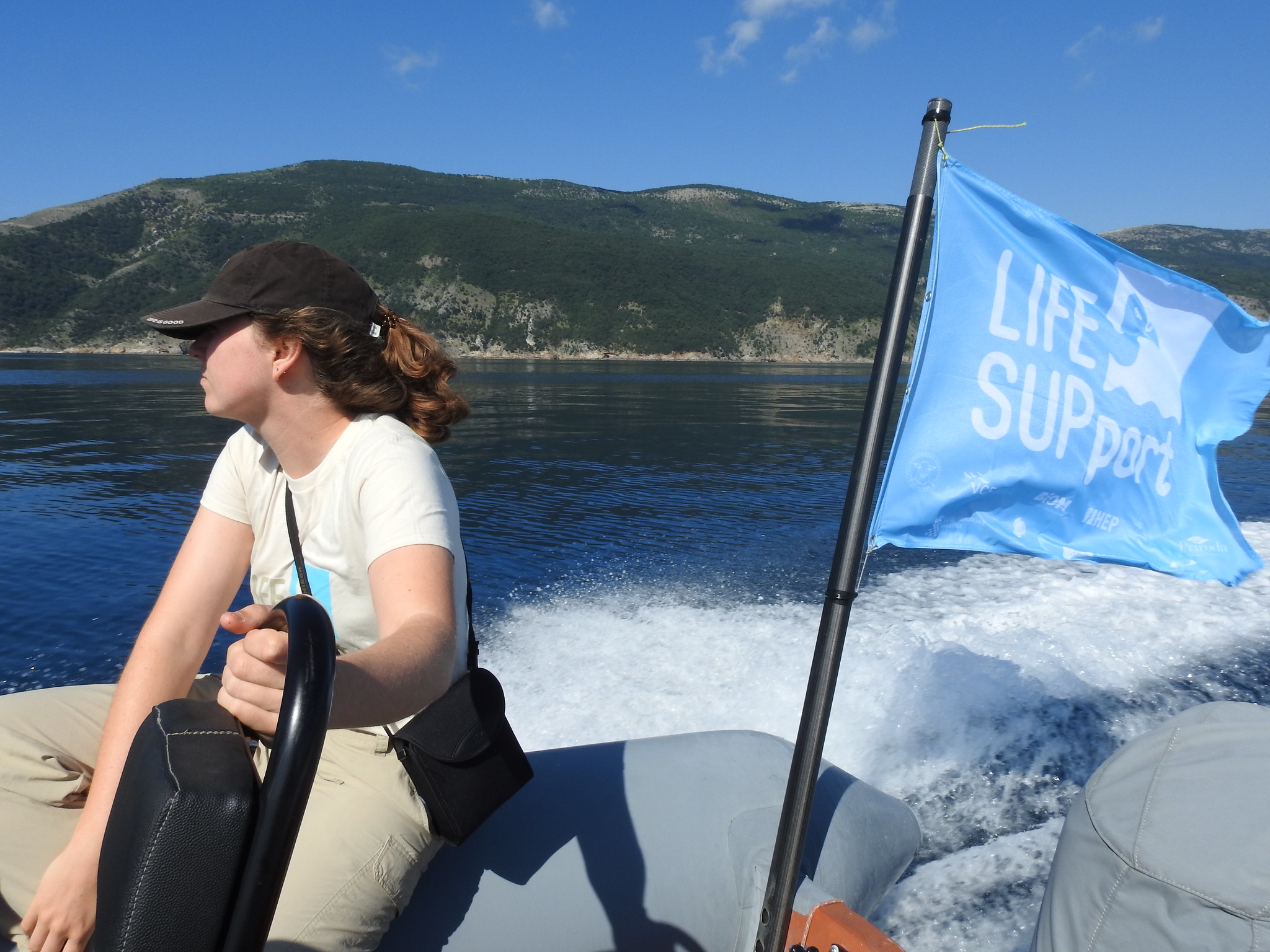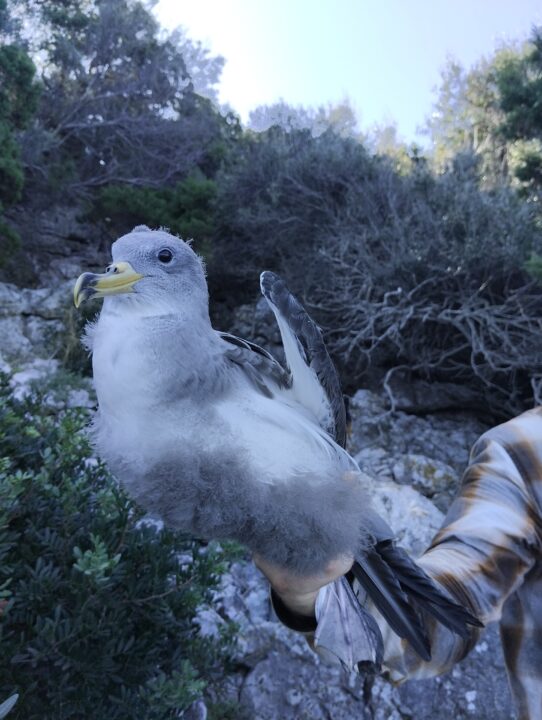
After nearly five years, LIFE Artina is slowly coming to an end. In the second half of September we made our last field visit to Lastovo in scope of the project, in order to assess the breeding success for Scopoli’s shearwater (Calonectris diomedea). The species breeds on 16 islands around Lastovo and comes to the archipelago in early March before it lays its egg in late May. After a very long breeding season the chicks are finally ready to leave the nest in October when all individuals migrate to the Atlantic Ocean.
To make sure Scopoli’s shearwaters have a safe breeding season it is important to remove the invasive black rat from their breeding colonies, as this introduced mammal predates on shearwater eggs and chicks. Over the last five years Biom has been controling and removing rat populations from several important Scopoli’s shearwater colonies around Lastovo, and in 2023 Public Institution Lastovo Islands Nature Park continued this work on several of the priority colonies.
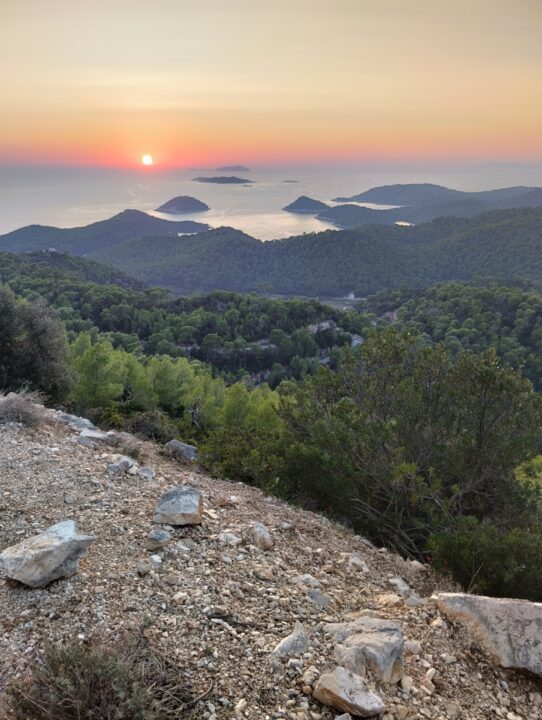
Upon visiting the nests in September, we were very happy to see that 62% of monitored nests had a nearly fully-grown chick in them. This is an increase of more than 10% for these specific colonies since we started the project in 2019. Most chicks are deep in their crevice nests, and out of reach for us. Nevertheless, we managed to ring 39 chicks, which is more than any of the previous years. Ringing of chicks is important to understand how many of them survive to become adult birds and to study where they themselves will end up breeding in the future. Throughout LIFE Artina a total of 132 Scopoli’s shearwater chicks was ringed.
We wish these youngsters a safe first journey on the open seas and hope to find them breeding around Lastovo some time in the future. We will surely be there to greet them, as our a new LIFE project called TETIDE has just started, which allows us to continue some of the important rat control and seabird monitoring work around Lastovo and also expand our work to the neighbouring islands Vis, Biševo, Palagruža, Svetac and Jabuka. These islands belong to special protected area for birds (SPA Pučinski otoci) within the Natura 2000 ecological network and represent the other important area for shearwaters in Croatia.
Wrote: Dries Engelen




